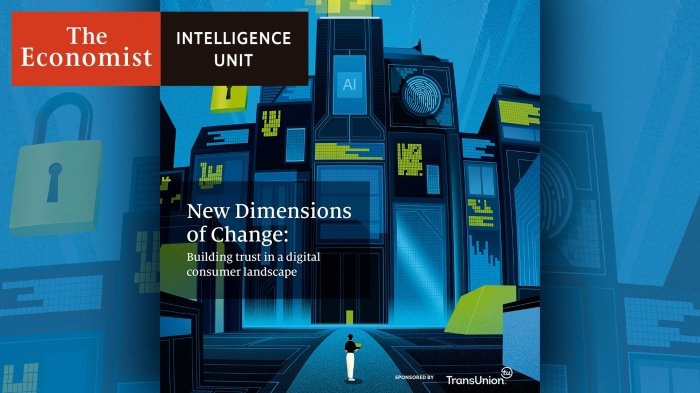According to a new global study by the Economist Intelligence Unit and TransUnion
A
new global study by The Economist Intelligence Unit and TransUnion has overwhelmingly found the key to whether or not companies go out of business hinges on providing consumers friction-right digital transactions. Nearly 85% of global executives surveyed as part of the study, and 83% in the case of the gambling & casino industry, said they believe smooth digital transactions are “essential to business survival” rather than merely a competitive edge.
The report, “New Dimensions of Change: Building Trust in a Digital Consumer Landscape,”
included responses from 1,610 executives in Brazil, Canada, Chile, China, Colombia, the Dominican Republic, Hong Kong, India, the Philippines, South Africa, the U.K. and the U.S. The research uncovered how technologies like artificial intelligence (AI), national digital IDs and super-apps can help overcome hurdles and possibly create new challenges to building digital trust.
As for the gambling & casino industry, 81% of executives surveyed said it is likely that biometrics will be used to authenticate the vast majority of payments. Also, 82% agreed that there are benefits in a national digital ID for fraud prevention in consumer transactions, becoming the industry with the highest percentage in this topic. “As more and more consumer credentials and personal data are breached and made available on the dark web, identity verification through methods like a national digital ID have become increasingly important,” Angie White, Senior Manager at TransUnion told Yogonet. “In iGaming, the influx of stolen credentials is especially important for online gambling operators to protect against as it could fuel increases in account takeover, identity fraud and synthetic identity fraud.“
“Fraudsters could take over an online gambling account to simply gain access to the funds a player has stored on their account to fraudulently withdraw them. Obviously, this has disastrous effects in terms of the customer relationship but can also do reputational damage to the operator. We have also had operators report that they are seeing a rise in bad actors taking over legitimate player accounts to use them for money muling. This allows them to move money through an operator’s platform, laundering it to avoid detection of criminal activity, and puts the operator at risk for anti-money laundering (AML) fines,” she explained.
“Beyond account takeover concerns, gambling operators are also going to have to contend with a surge in true and synthetic identity fraud. True identity fraud is when a consumer’s identity is stolen and used for illicit purposes. Synthetic identities, which are also sometimes called “Frankenstein identities,” are pieces of real and fake identities that are strung together to create a new fake identity that looks like someone with a thin credit file — for instance, a young adult. With both true and synthetic identity fraud, operators will need to prevent the setup of fake accounts which often involve stolen credit cards or fraudulent payment methods which could result in big losses and also open up the risk for money laundering,” White concluded.
Shai Cohen, senior vice president of Global Fraud Solutions at TransUnion, said in a press release Thursday: “COVID-19 has dramatically accelerated digital transformation with 61% of our survey respondents saying their organization has changed their digital transaction process due to the pandemic. But all of this digital progress will be wiped out if we can’t remove these barriers to building bilateral digital trust. For instance, two-thirds of executives in the study who said their company changed their digital transaction process as a result of the pandemic experienced glitches.”
Overwhelmingly, global respondents from different industries answered that: biometrics will be the dominant payment customer authentication method; fraud detection and improved security is the greatest benefit to using AI; and a national digital ID system will help prevent consumer fraud.
Approximately 85% of executives say biometrics are likely to be used to authenticate the vast majority of payments in the next ten years. About 43% of respondents noted that fraud detection and improved security is the greatest benefit to using AI. This was the top selection by far with smoother customer experience being the second most used answer at 29%. Furthermore, the vast majority of executives, 79%, think national digital IDs will help fraud prevention in consumer transactions.
“Ensuring consumer trust starts with preventing fraud. Our research overwhelmingly showed that biometrics, AI and national digital IDs aren’t just a fad for consumer fraud prevention. They are key for trusted commerce for the foreseeable future,” Cohen continued.
Furthermore, seven in 10 executives believe a national digital ID gives low-income groups access to consumer services they would have previously been excluded from. By industry, respondents from consumer lending and telecommunications are most likely to think such IDs give lowerincome groups access to services they might otherwise lack. Both industries have led the way over the last decade in reaching the community of financially-underserved customers, manifested in innovations like microfinance and mobile money.
Also, nearly 73% of global executives believe consumers are comfortable sharing personal data with private companies and 71% with governments. Brazilian, Chinese and Dominican Republican executives have vastly differing views about whether or not consumers are willing to share data with private companies versus government bodies (more than 10% difference between the two). Chinese respondents believe consumers are much more comfortable sharing personal data with government bodies than companies. Brazilian and Dominican Republican executives have the opposite belief.
“Technological innovations like AI, biometrics and national digital IDs paired with proven fraud prevention methods like device intelligence can provide a more convenient and inclusive way for consumers to transact that still protects security and privacy,” Cohen concluded.
The survey findings and a Dec. 3 webinar about the report is at the “New Dimensions of Change: Building trust in a digital consumer landscape” report website.



